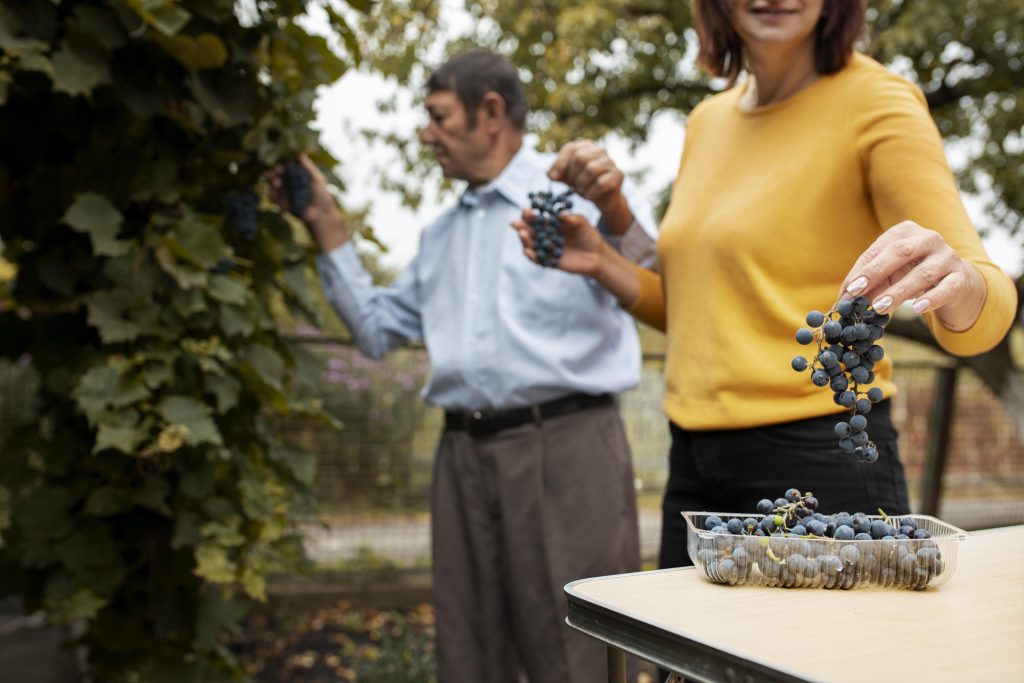Are you ready to embark on an extraordinary journey through the finest wines that Israel has to offer? Prepare to be amazed as we take you on a captivating exploration of Israeli wineries, regions, and grapes. From the lush landscapes to the thriving wine industry, we will guide you through this ancient land’s remarkable wine culture. Indulge your senses in the mouthwatering Mediterranean cuisine, vibrant markets, and exquisite wines that await you. Whether you’re a wine aficionado or simply curious about the flavors of this region, this article will be your ultimate companion in discovering the best wines from Israel. So get ready to savor the extraordinary tastes that await you on this unforgettable adventure.
Contents
- Israel’s Wine History
- Renaissance of Israeli Viticulture
- Diversity of Israeli Wines
- Official Wine Regions in Israel
- Overview of the Israeli Wine Industry
- Challenges of Winemaking in Israel
- Tabor Winery and Its Wines
- Binyamina Winery and Its Wines
- Alexander Winery and Its Wines
- Wineries in the Golan Heights
- Wineries in Galilee
- Wineries in the Judaean Mountains and Near Zichron Yaakov
Israel’s Wine History
Discover the fascinating origins of wine in Israel, a country steeped in biblical history and renowned for its vibrant winemaking culture. The historical significance of wine in Israel cannot be overstated. Wine has deep roots in the Middle East, dating back to biblical times. It held immense religious importance for Jews and later Christians, symbolizing sacred rituals and celebrations. During the Roman period, Judea and port cities became vital centers for wine production, further solidifying its place in the region’s history.
The influence of religion on winemaking in Israel cannot be ignored. Wine has played a pivotal role in religious ceremonies and rituals, shaping the way wine is produced and consumed. However, the Muslim rule of the Holy Land saw a decline in the wine tradition, and it was the Crusaders who attempted to revive it by importing wines from Europe.
Foreign winemakers have also had a significant impact on Israel’s winemaking culture. The Renaissance of viticulture in Israel began with the help of Baron Edmond de Rothschild, who played a vital role in founding viticulture in the country. The establishment of the Carmel cooperative of winegrowers and the Golan Heights Winery further propelled the growth of the industry, focusing on producing quality wines that meet international standards.
Indigenous grape varieties add uniqueness to Israeli wines. Marawi and Argaman are two notable native vines that contribute to the diverse range of flavors and aromas found in Israeli wines.
Today, wine tourism in Israel is thriving, attracting visitors from around the world. With over 300 wineries to explore, each with its own unique charm and character, wine enthusiasts can indulge in tastings, vineyard tours, and immersive experiences that showcase the rich history and vibrant winemaking culture of Israel.
Renaissance of Israeli Viticulture
The renaissance of Israeli viticulture brought about a radical renewal of wine production in the country. Innovation in Israeli viticulture has been key to this transformation, as winemakers have embraced new techniques and technologies to produce world-class wines. The influence of international standards has also played a significant role, as Israeli winemakers strive to meet the high expectations of the global wine community.
One of the driving forces behind the renaissance of Israeli viticulture is the impact of Baron Edmond de Rothschild. His investment in the late 19th century laid the foundation for the modern Israeli wine industry, and his commitment to quality continues to inspire winemakers today.
Sustainability practices in Israeli wineries have also been instrumental in the industry’s growth. From organic farming methods to water conservation initiatives, Israeli winemakers are dedicated to preserving the land and resources for future generations.
Moreover, Israeli wines are known for their unique grape varieties. From the ancient Marawi to the indigenous Argaman, these grapes add a distinct character to Israeli wines, making them stand out in the global wine market.
Diversity of Israeli Wines
As you delve into the exploration of Israeli wines, you’ll find a remarkable diversity of flavors, influenced by the unique combination of grape varieties, regions, and winemaking techniques. Israeli wine culture is a vibrant and dynamic scene, with over 300 wineries spread across the country. These wineries produce a wide range of award-winning wines, both white and red. Some of the notable white varieties include Chardonnay, Sauvignon Blanc, and Riesling, while the red varieties include Cabernet Sauvignon, Merlot, and Syrah.
What sets Israeli wines apart is the presence of indigenous grape varieties like Marawi and Argaman, adding a distinct uniqueness to the wines. These grapes have deep historical roots in the region, dating back to biblical times.
Wine tourism in Israel is also a growing industry, with many wineries offering tours and tastings to visitors. This allows wine enthusiasts to not only taste the diverse range of Israeli wines but also learn about the winemaking techniques employed by Israeli producers.
In recent years, Israeli wine exports have been on the rise, with Israeli wines gaining recognition and accolades on the international stage. This increased global demand is a testament to the quality and diversity of Israeli wines.
Official Wine Regions in Israel
When exploring Israeli wines, you’ll find that the country is divided into official wine regions, each offering its own unique terroir and grape varieties. Here are five key points to help you appreciate the official wine regions in Israel:
- Israeli wine regions: Israel has several official wine regions, including Galilee, Shomron, Samson, Judean Hills, and the Negev. Each region has its own distinct characteristics and contributes to the diversity of Israeli wines.
- Vineyard climate in Israel: Israel’s vineyards benefit from diverse climates, ranging from the cool Mediterranean breezes in Galilee to the hot desert conditions in the Negev. This range of climates allows for the cultivation of a wide variety of grape types and flavors.
- Indigenous grape varieties: Israeli winemakers have embraced their unique terroir by cultivating indigenous grape varieties such as Marawi and Argaman. These grapes add a distinct character to Israeli wines and showcase the country’s rich viticultural heritage.
- Israeli wine exports: The Israeli wine industry has experienced significant growth in recent years, with exports reaching various international markets. Israeli wines have gained recognition for their quality and unique flavors, making them a sought-after choice among wine enthusiasts worldwide.
- Wine tourism in Israel: Wine tourism has become increasingly popular in Israel, with many visitors eager to explore the country’s wineries and vineyards. From guided tours and tastings to immersive experiences in picturesque settings, wine tourism offers a unique way to discover Israel’s rich wine culture.
Overview of the Israeli Wine Industry
Explore the dynamic landscape of the Israeli wine industry, from its thriving wineries to its unique grape varieties, and discover a world of exceptional wines waiting to be tasted. Israeli wine production has been on the rise, with over 300 wineries spread across the country. These wineries produce a wide range of award-winning wines, including notable white varieties such as Chardonnay, Sauvignon Blanc, and Riesling, as well as red varieties like Cabernet Sauvignon, Merlot, and Syrah. What sets Israeli wines apart is the inclusion of native vines such as Marawi and Argaman, adding a touch of uniqueness to the industry.
Israel is divided into official wine regions, including Galilee, Shomron, Samson, Judean Hills, and the Negev. These regions offer diverse areas and climates, ranging from the sea to the desert, which contribute to the distinct characteristics of Israeli wines. However, classifying Israeli producers by region can be challenging due to their production practices.
The Israeli wine industry faces several challenges, including a warm climate with extreme temperatures, the need to balance complexity in wines, critical picking decisions, and grape protection from the sun. Good tannin management is also crucial. Despite these challenges, Israeli winemakers have been able to produce exceptional wines that have gained international recognition.
With a low per capita wine consumption of just 4 liters, Israeli wine culture is still growing and evolving. However, the industry has made strides in recent years, with Israeli wine exports steadily increasing. The Israeli wine industry is an exciting and vibrant scene, with a rich history and a promising future, offering wine enthusiasts a world of exceptional wines to explore and enjoy.
Challenges of Winemaking in Israel
To overcome the unique challenges of winemaking in Israel, you need to navigate a warm climate with extreme temperatures while ensuring complexity in your wines. The warm climate presents several obstacles that winemakers must overcome to produce high-quality wines. Here are some of the challenges they face:
- Picking decisions: The hot climate in Israel can lead to grapes ripening quickly, requiring careful timing and decision-making when it comes to harvesting. Picking the grapes at the optimal moment is crucial to achieve the desired flavor and balance in the final wine.
- Grape protection: The intense sunlight and high temperatures in Israel can be detrimental to grape quality. Winemakers need to employ strategies such as shading, canopy management, and irrigation to protect the grapes from sunburn and dehydration.
- Tannin management: Tannins play an important role in the structure and aging potential of wines. In a warm climate, it can be challenging to achieve optimal tannin ripeness without sacrificing acidity or flavor. Skillful tannin management is essential to create balanced and harmonious wines.
- Complexity balancing: The warm climate in Israel can result in wines that are high in alcohol and fruit-forward. However, achieving complexity and nuance in these wines requires careful blending and aging techniques. Winemakers must balance the natural fruitiness of the grapes with other elements such as acidity, tannins, and oak influence.
- Warm climate challenges: The warm climate in Israel poses additional challenges such as increased risk of disease and pests. Winemakers need to implement effective vineyard management practices and disease prevention strategies to ensure the health of the vines and the quality of the grapes.
Navigating these challenges requires skill, experience, and a deep understanding of the unique characteristics of the Israeli climate. Despite these obstacles, Israeli winemakers have managed to produce wines that are increasingly recognized and appreciated worldwide.
Tabor Winery and Its Wines
Now let’s delve into Tabor Winery and its impressive selection of wines. Tabor Winery, located in the fertile Galilee region of Israel, has gained recognition for its unique approach to winemaking. One of the key factors that sets Tabor Winery apart is its use of unique grape varieties. They have embraced lesser-known varieties such as Roussanne and Tannat, which add a distinct character to their wines.
Tabor Winery also takes pride in its sustainable practices. They prioritize viticulture and pay close attention to their soils, ensuring that they are healthy and vibrant. This commitment to sustainability not only benefits the environment but also contributes to the overall quality of their wines.
When it comes to aging potential, Tabor Winery’s wines have shown great promise. The Tannat Single Vineyard 2013 and Malkiyia Cabernet Sauvignon are particularly noteworthy, demonstrating the winery’s dedication to crafting wines that can mature gracefully over time.
To enhance the enjoyment of their wines, Tabor Winery also offers recommendations for wine and food pairings. Whether it’s a refreshing Sauvignon Blanc paired with seafood or a robust Cabernet Sauvignon complementing a juicy steak, Tabor Winery’s wines are designed to elevate the dining experience.
Binyamina Winery and Its Wines
Moving on to Binyamina Winery, let’s now delve into the unique wines they produce in the Shomron region of Israel. Binyamina Winery is known for its innovative winemaking techniques that showcase the distinct characteristics of the Mediterranean climate and the diverse soils found in the region. Here are five reasons why a tasting experience at Binyamina Winery is a must:
- Winemaking techniques: Binyamina Winery employs modern winemaking techniques that combine tradition with innovation. This approach allows them to produce wines that reflect the unique terroir of the Shomron region.
- Mediterranean climate: The Shomron region benefits from a Mediterranean climate, with hot summers and mild winters. This climate creates optimal conditions for grape cultivation and contributes to the rich flavors and aromas found in Binyamina wines.
- Soil diversity: The soils in the Shomron region range from calcareous clay to terra rossa, limestone, and chalk. This diversity of soils imparts different characteristics to the grapes, resulting in a wide range of flavors and textures in Binyamina wines.
- Notable wines: Binyamina Winery is known for producing a variety of exceptional wines. Some notable examples include their Semillon 2014, a complex and aromatic white wine, and their Jasper 2015 white blend, which showcases a harmonious blend of different grape varieties.
- Tasting experience: A visit to Binyamina Winery offers a unique tasting experience where you can sample their diverse range of wines. The knowledgeable staff will guide you through the tasting, providing insights into the winemaking process and the characteristics of each wine.
Experience the artistry of winemaking at Binyamina Winery and discover the flavors that the Shomron region has to offer.
Alexander Winery and Its Wines
Continue your exploration of Israeli wineries by diving into the unique wines produced at Alexander Winery. Located in the Sharon region, Alexander Winery stands out for its avant-garde style, impressive packaging, and emphasis on oak. With an annual production of 50,000 to 60,000 bottles, the majority of which are destined for the export market, Alexander Winery has gained recognition for its innovative winemaking techniques.
At Alexander Winery, the winemakers employ unique methods that set them apart from other Israeli producers. Their avant-garde approach pushes the boundaries of traditional winemaking, resulting in wines that are bold, complex, and truly one-of-a-kind. The winery’s emphasis on oak adds layers of flavor and complexity to their wines, creating a memorable tasting experience for wine enthusiasts.
Not only are the wines themselves outstanding, but Alexander Winery also pays great attention to the presentation of their products. Their impressive packaging reflects the quality and craftsmanship that goes into each bottle. From the label design to the bottle shape, every detail is carefully considered, adding to the overall allure and appeal of their wines.
With a focus on the export market, Alexander Winery aims to showcase the best of Israeli winemaking to the world. By combining their unique winemaking techniques, avant-garde style, oak emphasis, and impressive packaging, they have successfully carved out a niche for themselves in the international wine scene. So, if you’re looking to explore the innovative side of Israeli wines, be sure to check out the exceptional offerings from Alexander Winery.
Wineries in the Golan Heights
To explore the wineries in the Golan Heights, head over to Pelter Winery and Golan Heights Winery. These two establishments offer unique experiences and exceptional wines that showcase the region’s winemaking prowess.
- Golan Heights Winery’s impact: Golan Heights Winery is responsible for Israel’s wine revolution. By introducing New World winemaking techniques, they have elevated the quality of Israeli wines to international standards. Their homegrown table wines are renowned for their excellence, making Golan Heights Winery one of the top producers in the country.
- Tal Pelter’s winemaking philosophy at Pelter Winery: Founded by Tal Pelter and his brothers, Pelter Winery combines Australian wine culture with Israeli roots. Tal Pelter, who studied oenology in Western Australia, brings his expertise to create premium wines that are accessible to all. With a focus on quality and craftsmanship, Pelter Winery offers a range of exceptional wines that embody their winemaking philosophy.
- Lotem Winery’s organic practices: Located in the Galilee region, Lotem Winery is known for its superb organic grapes. Situated overlooking the Kinneret and Lower Galilee, this winery pays meticulous attention to detail, even playing music for the grapes. The result is wines that are not only delicious but also environmentally friendly.
- Flam Winery’s Classico blend: Nestled in the Judaean Mountains, Flam Winery is a family-owned establishment that takes care of its vineyards like children. They offer an intimate tasting room experience and are particularly famous for their Classico blend, a spicy Cabernet that embodies the character of the region.
- Somek Winery’s traditional winemaking techniques: Located near Zichron Yaakov, Somek Winery embraces traditional winemaking techniques. Grapes are handpicked every morning and processed immediately through an old-fashioned barrel press. This authentic approach to winemaking allows them to create wines that are rich in flavor and true to their heritage.
Embark on a wine journey in the Golan Heights, where innovation, tradition, and organic practices come together to produce exceptional wines.
Wineries in Galilee
When exploring the wineries in Galilee, you’ll discover a range of exceptional wines that showcase the region’s winemaking prowess. Galilee, located in northern Israel, is home to several organic wineries that prioritize sustainable practices and produce high-quality wines. These wineries take advantage of the region’s Mediterranean climate, which provides warm days and cool nights, ideal for grape cultivation. Galilee’s diverse terroir and vineyard management techniques contribute to the production of unique and flavorful wines.
Grape varieties grown in Galilee include international favorites such as Cabernet Sauvignon, Merlot, and Chardonnay, as well as indigenous varieties like Marawi and Argaman. The wineries in Galilee offer wine tourism experiences, allowing visitors to explore the vineyards, learn about the winemaking process, and taste the wines firsthand. These experiences often provide a beautiful view of the North, adding to the overall ambiance.
Organic wineries in Galilee, such as Lotem Winery, stand out for their commitment to sustainable farming practices. Lotem Winery, located in Kibbutz Zivon, is known for its superb organic grapes and attention to detail. The winery even plays music for the grapes, believing that it enhances their growth and development.
Wineries in the Judaean Mountains and Near Zichron Yaakov
Discover some of the finest wineries in the Judaean Mountains and near Zichron Yaakov, offering exquisite wines and breathtaking views. Here are five wineries that you don’t want to miss:
- Flam Winery: Nestled in the beautiful Judaean Mountains, Flam Winery is a family-owned gem. They treat their vineyards like children, ensuring the highest quality grapes for their wines. Their famous Classico spicy Cabernet blend is a must-try, perfectly capturing the essence of the Judean Hills. And while you’re there, don’t forget to take in the gorgeous views that surround you.
- Lotem Winery: Located in the stunning Galilee region, Lotem Winery is known for its superb organic grapes. Situated on a hill overlooking the Kinneret and Lower Galilee, this winery pays attention to every detail, even playing music for the grapes. The result is wines that are truly exceptional. Take a moment to soak in the beautiful view of the North as you enjoy their exquisite wines.
- Pelter Winery: Founded by Tal Pelter and his brothers, Pelter Winery combines Australian wine culture with Israeli roots. Tal studied oenology in Western Australia, bringing a unique perspective to their winemaking. They offer premium wines that cater to the masses, creating a delightful fusion of flavors. Don’t miss the opportunity to taste their exceptional wines.
- Somek Winery: Located near the charming town of Zichron Yaakov, Somek Winery offers an authentic winemaking experience. Their grapes are handpicked every morning and processed immediately through an old-fashioned barrel press. The result is wines that are full of character and authenticity. After your winery visit, take a stroll along the town’s promenade and enjoy the local cafes.
- Golan Heights Winery: Responsible for Israel’s wine revolution, Golan Heights Winery introduced New World winemaking techniques to the region. They produce homegrown quality table wines that are considered some of the finest in the world. Take a wine-tasting tour or a vineyard tour to fully appreciate the passion and dedication that goes into their wines.
These wineries in the Judaean Mountains and near Zichron Yaakov offer not only exceptional wines but also a glimpse into the beauty of the Israeli landscape. Don’t miss the opportunity to visit and experience the unique flavors and breathtaking views they have to offer.



